Peng Lan
Elastically-Constrained Meta-Learner for Federated Learning
Jun 30, 2023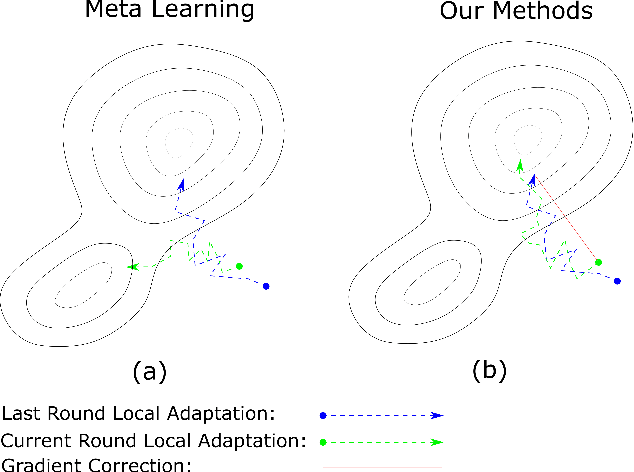

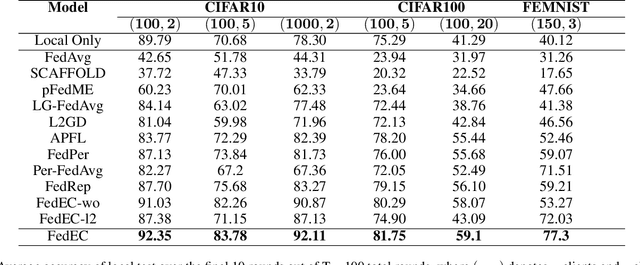
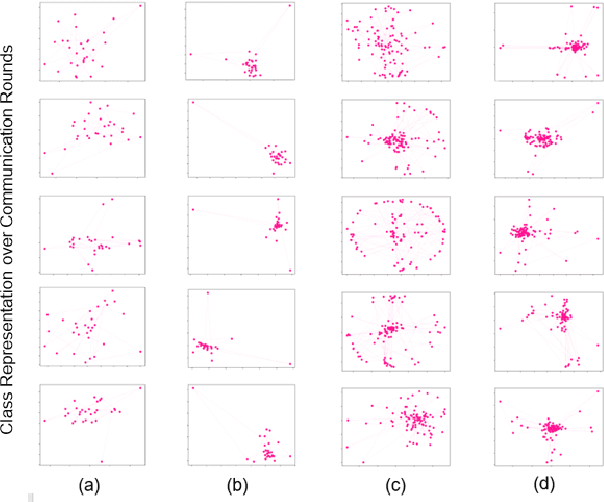
Abstract:Federated learning is an approach to collaboratively training machine learning models for multiple parties that prohibit data sharing. One of the challenges in federated learning is non-IID data between clients, as a single model can not fit the data distribution for all clients. Meta-learning, such as Per-FedAvg, is introduced to cope with the challenge. Meta-learning learns shared initial parameters for all clients. Each client employs gradient descent to adapt the initialization to local data distributions quickly to realize model personalization. However, due to non-convex loss function and randomness of sampling update, meta-learning approaches have unstable goals in local adaptation for the same client. This fluctuation in different adaptation directions hinders the convergence in meta-learning. To overcome this challenge, we use the historical local adapted model to restrict the direction of the inner loop and propose an elastic-constrained method. As a result, the current round inner loop keeps historical goals and adapts to better solutions. Experiments show our method boosts meta-learning convergence and improves personalization without additional calculation and communication. Our method achieved SOTA on all metrics in three public datasets.
Walle: An End-to-End, General-Purpose, and Large-Scale Production System for Device-Cloud Collaborative Machine Learning
May 30, 2022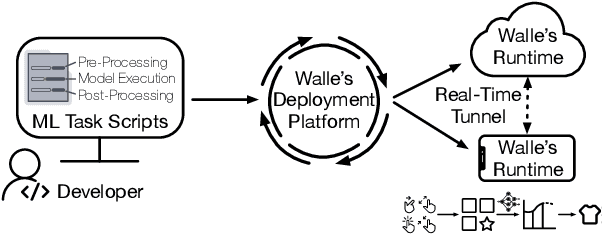

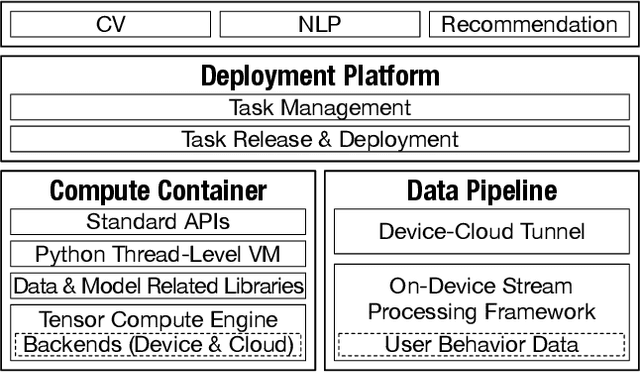
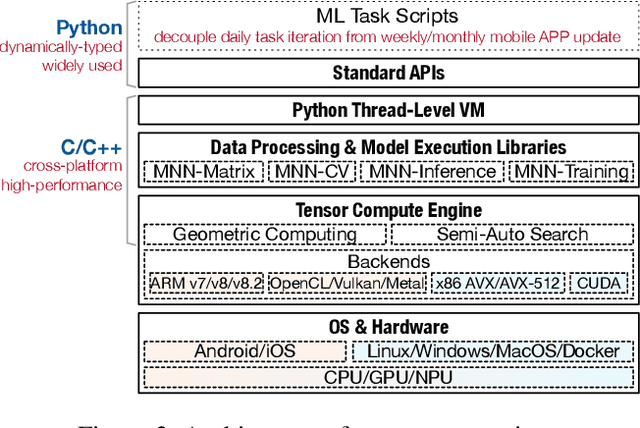
Abstract:To break the bottlenecks of mainstream cloud-based machine learning (ML) paradigm, we adopt device-cloud collaborative ML and build the first end-to-end and general-purpose system, called Walle, as the foundation. Walle consists of a deployment platform, distributing ML tasks to billion-scale devices in time; a data pipeline, efficiently preparing task input; and a compute container, providing a cross-platform and high-performance execution environment, while facilitating daily task iteration. Specifically, the compute container is based on Mobile Neural Network (MNN), a tensor compute engine along with the data processing and model execution libraries, which are exposed through a refined Python thread-level virtual machine (VM) to support diverse ML tasks and concurrent task execution. The core of MNN is the novel mechanisms of operator decomposition and semi-auto search, sharply reducing the workload in manually optimizing hundreds of operators for tens of hardware backends and further quickly identifying the best backend with runtime optimization for a computation graph. The data pipeline introduces an on-device stream processing framework to enable processing user behavior data at source. The deployment platform releases ML tasks with an efficient push-then-pull method and supports multi-granularity deployment policies. We evaluate Walle in practical e-commerce application scenarios to demonstrate its effectiveness, efficiency, and scalability. Extensive micro-benchmarks also highlight the superior performance of MNN and the Python thread-level VM. Walle has been in large-scale production use in Alibaba, while MNN has been open source with a broad impact in the community.
 Add to Chrome
Add to Chrome Add to Firefox
Add to Firefox Add to Edge
Add to Edge